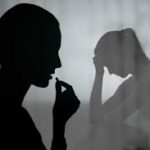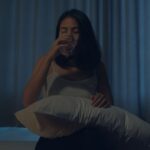Why Take Lyrica Only at Night?

Lyrica is a brand of pregabalin originally FDA approved as an anti-epileptic drug, also called an anticonvulsant. It works by slowing down impulses in the brain that cause seizures. Pregabalin also affects chemicals in the brain that send pain signals across the nervous system.
Lyrica is used to treat pain caused by fibromyalgia, or nerve pain in people with diabetes (diabetic neuropathy), herpes zoster (post-herpetic neuralgia), or spinal cord injury.
Lyrica is a controlled substance. It’s classified as a schedule V prescription drug. Schedule V drugs have accepted medical uses, but they also have the potential to cause psychological or physical dependence. This means that the drug could be misused. Government agencies such as the Drug Enforcement Administration (DEA) set rules for how schedule V drugs may be prescribed by a doctor and dispensed by a pharmacist. For more information, talk with your doctor or pharmacist.
How should I take Lyrica?
Take Lyrica exactly as prescribed by your doctor. Follow all directions on your prescription label and read all medication guides or instruction sheets. Your doctor may occasionally change your dose. Use the medicine exactly as directed.
Take the medicine at the same time each day, with or without food. Do not crush, chew, or break an extended-release tablet. Swallow the tablet whole.
Measure liquid medicine with the dosing syringe provided, or with a special dose-measuring spoon or medicine cup. If you do not have a dose-measuring device, ask your pharmacist for one.
Call your doctor if your symptoms do not improve, or if they get worse.
Do not stop using Lyrica suddenly, even if you feel fine. Stopping suddenly may cause increased seizures or unpleasant withdrawal symptoms. Follow your doctor’s instructions about tapering your dose for at least 1 week before stopping completely.
In case of emergency, wear or carry medical identification to let others know you take seizure medication.
When is the best time of day to take Lyrica?
Take Lyrica after your morning meal. If you do not take the dose the following morning, then take the next dose at your regular time after your evening meal. Do not take 2 doses at the same time.
Why take Lyrica only at night?
Some doctors recommend taking Lyrica at night because studies have shown that treatment with Lyrica is associated with improvement in all forms of insomnia and improvement in sleep. People with epilepsy may have an irregular sleep pattern, as seizures at any time of the night can disrupt sleep and seizures during the day can affect the next night’s sleep. For some people the effects of having a seizure can upset their sleep pattern for several days afterwards.
What are the side effects of Lyrica?
Lyrica can cause mild or serious side effects. The following lists contain some of the key side effects that may occur while taking Lyrica. These lists do not include all possible side effects.
For more information about the possible side effects of Lyrica, talk with your doctor or pharmacist. They can give you tips on how to deal with any side effects that may be bothersome.
Mild side effects
Mild side effects of Lyrica can include:
• trouble concentrating
• dizziness
• dry mouth
• sleepiness
• swelling in your hands or feet
• weight gain
• blurry vision
Most of these side effects may go away within a few days or a couple of weeks. But if they become more severe or don’t go away, talk with your doctor or pharmacist.
Serious side effects
Serious side effects from Lyrica aren’t common, but they can occur. Call your doctor right away if you have serious side effects. Call 911 or your local emergency number if your symptoms feel life threatening or you think you’re having a medical emergency.
Serious side effects and their symptoms can include:
• Muscle problems, such as rhabdomyolysis (muscle breakdown). Symptoms can include:
o muscle pain, soreness, or weakness
o fever
o malaise (a general feeling of discomfort)
• Allergic reaction.
• Depression and suicidal thoughts or behaviors.
Side effects in children
Some side effects in children taking Lyrica may be more or less common than those in adults.
The only condition that Lyrica is approved to treat in children is partial onset seizures in those ages 1 month and older.
In clinical trials, the most common side effects seen in children taking Lyrica were:
- Increased appetite. Depending on the dosage used, increased appetite occurred in 0% to 8% of children taking Lyrica. In comparison, 0% to 4% of children taking a placebo (a treatment with no active drug) experienced increased appetite.
- Sleepiness. Sleepiness occurred in 15% to 21% of children taking Lyrica, depending on their age. In comparison, sleepiness occurred in 9% to 14% of children taking a placebo.
- Weight gain. Weight gain occurred in 0% to 8% of children taking Lyrica, depending on their age. In comparison, weight gain occurred in 0% to 4% of children taking a placebo.
You may wonder how often certain side effects occur with this drug. Here’s some detail on certain side effects this drug may cause.
Allergic reaction
As with most drugs, some people can have an allergic reaction after taking Lyrica. Symptoms of a mild allergic reaction can include:
- a rash
- itchiness
- flushing (warmth, swelling, or redness in your skin)
A more severe allergic reaction is rare but possible. Symptoms of a severe allergic reaction can include:
- swelling under your skin, typically in your eyelids, lips, hands, or feet
- swelling of your tongue, mouth, or throat
- trouble breathing
It isn’t known how many people may have had an allergic reaction during clinical trials of Lyrica.
Call your doctor right away if you have an allergic reaction to Lyrica, as the reaction could become severe. Call 911 or your local emergency number if your symptoms feel life threatening or you think you’re having a medical emergency.
Weight gain
Lyrica can cause weight gain in some people. Across clinical studies involving adults with different conditions:
- 9% of people who took Lyrica experienced weight gain of 7% or more
- 2% of people who took a placebo (a treatment with no active drug) experienced weight gain of 7% or more
The researchers noted that the risk of weight gain from Lyrica appeared to be related to higher dosages and how long a person took the drug for. The researchers didn’t find any significant changes to blood pressure in people who gained weight while taking Lyrica.
Lyrica may also cause swelling in your feet, hands, and legs, which can contribute to weight gain.
If you’re concerned about gaining weight during your treatment, talk with your doctor.
Sleepiness
Lyrica may cause sleepiness in some people. In clinical trials involving adults with different conditions:
- 23% of adults who took Lyrica reported feeling sleepy
- 8% of adults who took a placebo reported feeling sleepy
In addition:
- 30% of adults who took Lyrica reported feeling dizzy
- 8% of adults who took a placebo reported feeling dizzy
Sleepiness was also reported in clinical trials of children taking Lyrica. See “Side effects in children” above for more details.
Because Lyrica can make you sleepy or dizzy, it can affect your ability to drive or operate machinery. For this reason, you should avoid these and other potentially dangerous activities until you know how Lyrica affects you. Talk with your doctor about when it may be safe for you to do these activities again.
If you experience sleepiness or dizziness that’s bothersome during your treatment, talk with your doctor. They’ll work with you to find the best treatment for your condition.
Sexual side effects
You may wonder if Lyrica can cause side effects that affect you sexually.
It was noted in clinical studies that some people experienced an increase or decrease in their libido (sex drive) while taking Lyrica. It isn’t known how often this side effect may have occurred in people taking either Lyrica or a placebo (a treatment with no active drug). It’s also not known for certain whether these sexual side effects were due to Lyrica or another cause.
It’s also important to note that other side effects of Lyrica, like feeling sleepy, could affect your sex drive.
If you’re concerned about sexual side effects during your Lyrica treatment, talk with your doctor. They can help determine the cause and discuss the best treatment for you.
Blurry vision
Blurry vision could occur while taking Lyrica. Across clinical studies involving adults with different conditions:
- 7% of adults taking Lyrica reported blurry vision
- 2% of adults taking a placebo reported blurry vision
But in most cases, blurry vision went away as people continued taking the medication.
It isn’t known if Lyrica has any long-term effects on vision. Call your doctor if you experience any changes in your vision while taking Lyrica. Your doctor may decide to monitor your vision more frequently. If your vision changes don’t go away even with continued use of Lyrica, your doctor may have you try a different treatment for your condition.
Depression and suicide risk
Lyrica belongs to a class of medications called antiepileptic drugs (AEDs). As with other AEDs, Lyrica may raise your risk for suicidal thoughts and behaviors. Lyrica may also increase your risk for new or worsening depression and other unusual changes in your behavior or mood.
Tell your doctor right away if you experience new or worsening:
- anxiety
- depression
- thoughts of suicide
- other changes in your mood
It’s not known how many children or adults taking Lyrica may have suicidal thoughts or behaviors during clinical trials. But in clinical trials of people taking other AEDs:
- about 0.43% of people taking an AED had suicidal thoughts or behaviors
- about 0.24% of people taking a placebo (a treatment with no active drug) had suicidal thoughts or behaviors
If you have new or worsening depression or thoughts of suicide while taking Lyrica, talk with your doctor right away. They may recommend that you switch to a different medication to treat your condition. Your doctor may also recommend other ways to help lower your suicidal thoughts or behaviors.





